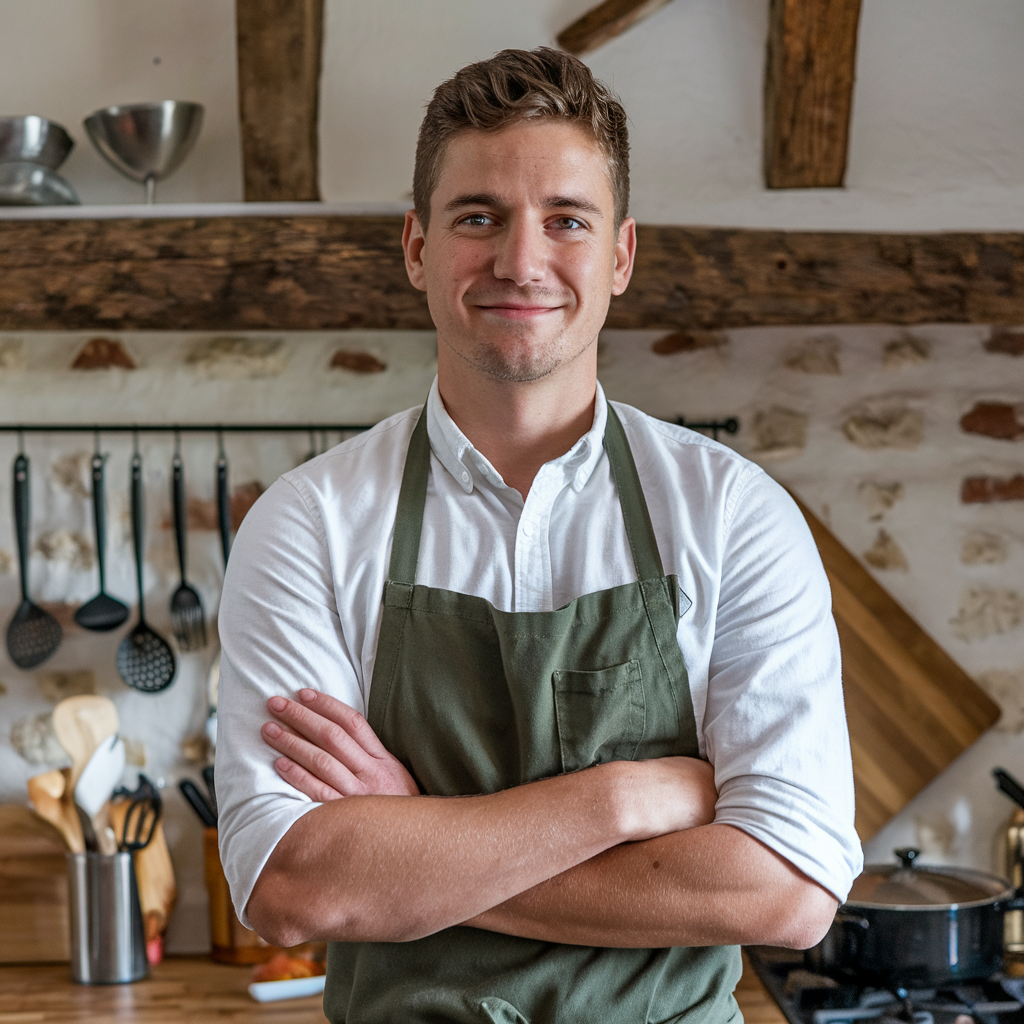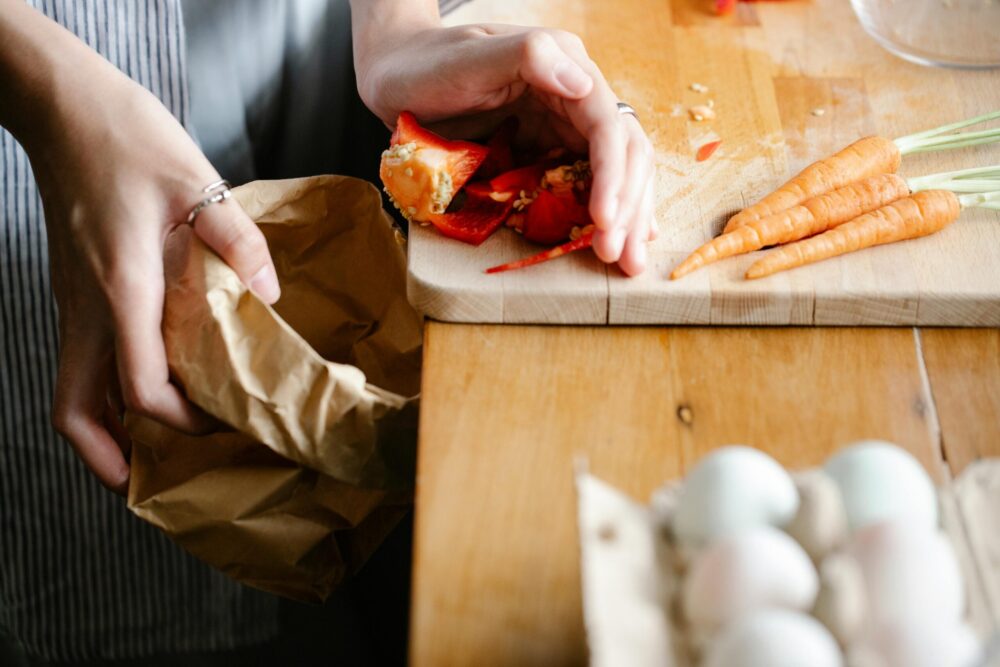Food waste is a pressing global issue, but reducing it starts right in your kitchen. Home cooks can make a significant impact by learning portion control, proper food storage techniques, and creative ways to repurpose leftovers. Beyond saving money and resources, reducing food waste is a powerful step toward sustainability.
This guide explores the best courses for mastering food waste reduction, from masterclass cooking classes to workshops on cooking culinary skills and professional cooking techniques. Whether you’re a beginner looking to cut back on waste or an experienced cook seeking advanced strategies, these resources will help you create a zero-waste kitchen.
Why Food Waste Reduction Matters
The Environmental Impact
According to the Food and Agriculture Organization (FAO), approximately one-third of all food produced globally goes to waste. This waste contributes to greenhouse gas emissions, as decomposing food releases methane, a potent pollutant. By adopting waste reduction practices, home cooks can help mitigate these effects.
The Financial Impact
Food waste isn’t just bad for the planet—it’s costly for households. Learning how to minimize waste through proper planning and storage can significantly reduce grocery bills.
The Culinary Impact
Reducing food waste encourages creativity in the kitchen, turning leftover ingredients into delicious meals. It’s an excellent way to enhance your cooking skills while making the most of what you have.
1. MasterClass Cooking Classes: Elevate Your Zero-Waste Skills
Masterclass cooking classes are a premium option for home cooks who want to learn from world-renowned chefs. While not exclusively focused on food waste reduction, many courses incorporate tips and techniques that align with zero-waste principles.
Courses to Explore
- Massimo Bottura Teaches Modern Italian Cooking: Learn how to repurpose ingredients creatively, a hallmark of Bottura’s philosophy.
- Alice Waters Teaches the Art of Home Cooking: This course emphasizes using seasonal and local produce, ensuring ingredients are used at their peak freshness.
- Gordon Ramsay Teaches Cooking: Ramsay shares essential storage techniques and tips for making the most out of every ingredient.
Benefits of MasterClass
- Learn from experts who prioritize sustainability in their culinary practices.
- Gain professional cooking tips that enhance your efficiency in the kitchen.
- Access lessons at your own pace, allowing you to integrate zero-waste strategies over time.
2. Online Food Waste Reduction Courses for Home Cooks
Several platforms offer comprehensive online courses that focus specifically on food waste reduction. These courses teach practical strategies for portion control, meal planning, and creative uses for leftovers.
Popular Platforms and Courses
- Rouxbe Online Culinary School: Their plant-based courses include modules on reducing waste through creative ingredient use and storage techniques.
- Udemy – Zero-Waste Kitchen Cooking: A budget-friendly course covering meal planning, food storage, and recipes that use every part of an ingredient.
- edX – Sustainable Food Systems by Wageningen University: While more academic, this course provides insights into how individuals can contribute to reducing food waste.
What You’ll Learn
- Portion Control: Techniques for measuring ingredients to avoid over-preparation.
- Storage Tips: How to extend the shelf life of perishable items.
- Leftover Recipes: Ideas for turning scraps and remnants into flavorful dishes.
3. Local Cooking Culinary Workshops on Food Waste Reduction
For a hands-on approach, consider enrolling in local workshops that teach cooking culinary techniques with a focus on sustainability. These in-person classes allow you to interact with instructors and other participants, making it a social and educational experience.
Examples of Local Workshops
- Farm-to-Table Classes: Many local farms or community centers offer classes that emphasize using fresh, local ingredients without waste.
- Zero-Waste Meal Prep Workshops: These classes teach how to plan and prepare meals while minimizing leftovers and scraps.
- Community College Culinary Programs: Some professional cooking programs include modules on food sustainability and waste reduction.
Benefits of Local Workshops
- Real-time feedback from instructors.
- Networking opportunities with like-minded individuals.
- Access to local resources, such as farmers’ markets and food co-ops.
4. Professional Cooking Techniques for Zero Waste
Professional cooking schools and culinary institutes are increasingly incorporating sustainability into their curricula. Learning professional cooking techniques can enhance your efficiency and creativity, allowing you to use every part of an ingredient.
Culinary Schools Offering Zero-Waste Training
- The Culinary Institute of America (CIA): Their programs include sustainability-focused courses that teach students how to reduce waste in professional kitchens.
- Le Cordon Bleu: Many campuses offer workshops on efficient ingredient use and food preservation.
- Escoffier School of Culinary Arts: Their online programs include modules on sustainable cooking practices and waste reduction.
Skills You’ll Gain
- Knife Skills: Properly trimming and cutting ingredients to maximize yield.
- Batch Cooking: Preparing large quantities efficiently, reducing leftover waste.
- Creative Plating: Using scraps for garnishes or new dishes.
5. Family-Friendly Homeschool Cooking Classes
For families, integrating waste reduction into cooking lessons can teach kids valuable life skills while promoting sustainability. Homeschool-friendly classes are designed to be engaging and practical, making them ideal for younger learners.
Family-Oriented Zero-Waste Classes
- Kids Cook Real Food: A subscription-based program that includes lessons on meal planning and using leftovers creatively.
- Outschool – Zero-Waste Cooking for Kids: Interactive online classes tailored to teach children how to minimize food waste.
- America’s Test Kitchen Kids: Offers recipes and activities that focus on ingredient conservation.
Benefits for Families
- Encourages teamwork and problem-solving in the kitchen.
- Instills eco-friendly habits at a young age.
- Makes cooking a fun and educational family activity.
6. Tips and Tricks for Reducing Food Waste at Home
In addition to taking courses, implementing simple strategies can significantly reduce waste in your kitchen.
Portion Control
- Use measuring cups and kitchen scales to prepare the right amount of food.
- Plan meals based on your family’s eating habits to avoid leftovers.
Smart Storage
- Store perishables in airtight containers to prolong freshness.
- Label leftovers with dates to ensure they’re used before they spoil.
Creative Zero-Waste Recipes
- Vegetable Scraps Stock: Save carrot tops, onion peels, and celery leaves to make homemade broth.
- Bread Pudding: Transform stale bread into a delicious dessert.
- Fruit Smoothies: Use overripe bananas, berries, or apples in smoothies.
7. The Future of Zero-Waste Cooking Education
As sustainability becomes a priority in the culinary world, more educational programs are integrating food waste reduction into their curricula. From AI-powered meal planning tools to virtual cooking labs, the future of zero-waste education is exciting.
Emerging Trends
- Smart Kitchens: Appliances that help track expiration dates and suggest recipes for soon-to-expire ingredients.
- 3D Food Printing: Innovative technology that uses food waste to create edible products.
- Virtual Reality Classes: Immersive cooking experiences that teach sustainability principles.
Final Thoughts: Master the Art of Zero-Waste Cooking
Reducing food waste isn’t just a trend—it’s a necessary step toward a sustainable future. By enrolling in masterclass cooking classes, online courses, or local workshops, home cooks can learn to make the most of every ingredient. These educational resources not only save money and resources but also inspire creativity and enhance your culinary skills.
Whether you’re experimenting with cooking culinary techniques or learning professional cooking methods, there’s a course out there to suit your needs. Start your journey today, and transform your kitchen into a zero-waste powerhouse.


